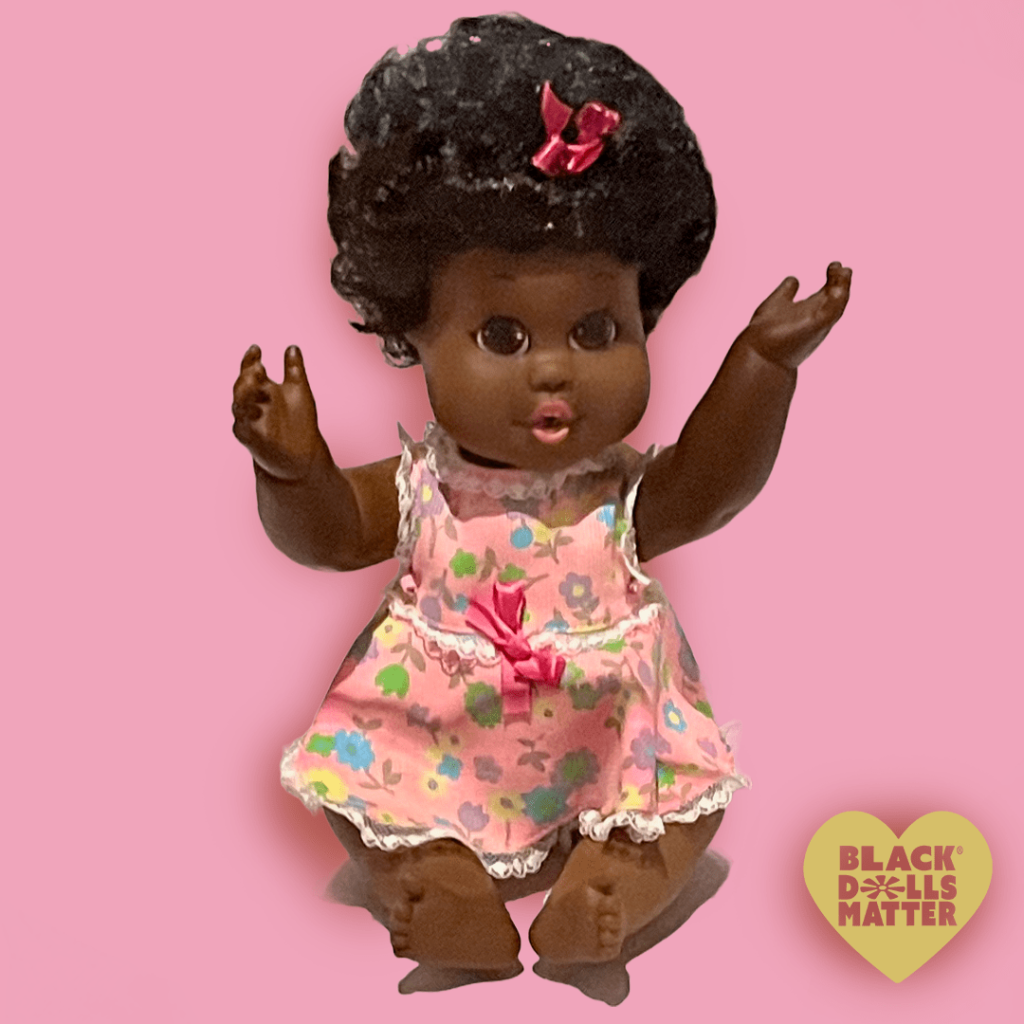
Baby Nancy was made by the Shindana Toy Company®.
The Shindana Toy Company was a trailblazer in the world of dolls, specifically for Black children. Founded in the 1960s, the company aimed to combat the lack of representation of Black children in the toy industry. They produced dolls that had realistic features and were designed to be positive role models for Black children.
The dolls were also culturally accurate, with many of them wearing traditional African clothing. The company also produced a line of dolls based on famous Black historical figures such as Muhammad Ali, Julius “Dr. J” Irving, and Marla Gibbs.
The Shindana Toy Company was not only a trailblazer in the toy industry but also in the Civil Rights Movement, their dolls were a tool for teaching Black children to love and appreciate themselves, in a world where they were often not represented or worse, misrepresented.
Today, a new generation of toy companies is following in the footsteps of the Shindana Toy Company. One of the most notable is Black Dolls Matter®, a company that also aims to provide representation for Black children in the toy industry. They offer a line of dolls with natural hair, and a wide range of skin tones, promoting self-love and self-acceptance in young Black children.
Black Dolls Matter® also partners with schools and community organizations to provide educational resources and workshops, encouraging young children to embrace their culture and history.
The Shindana Toy Company and Black Dolls Matter® both recognize the importance of representation in the toy industry and the impact it can have on young Black children. These companies are helping to break down the barriers of racism, by providing positive role models, promoting self-love, and encouraging cultural appreciation.
As the world becomes more diverse, it’s important that the toy industry reflects that diversity. These companies are working to ensure that all children see themselves represented in the toys they play with, and that they feel valued and included in society.